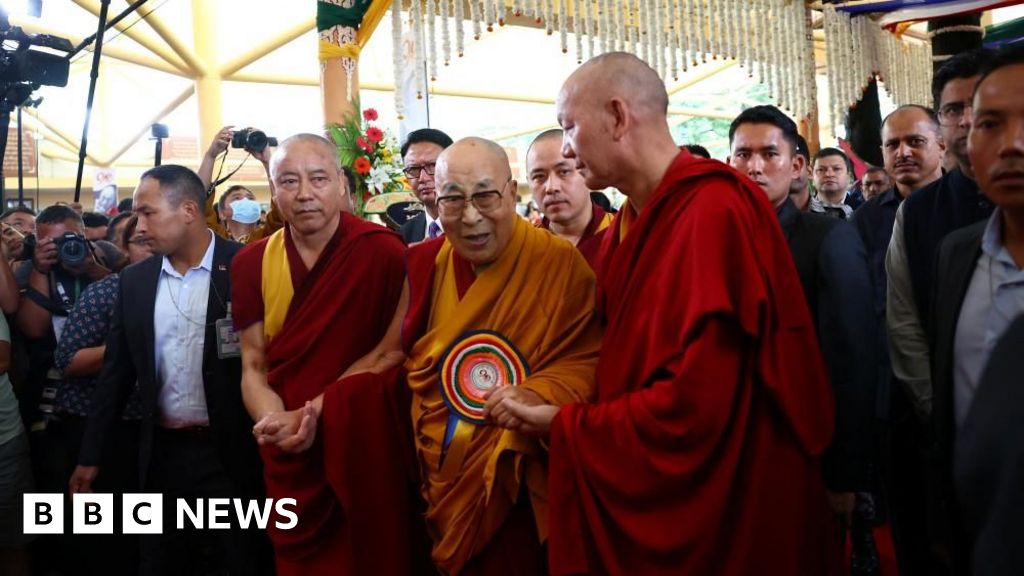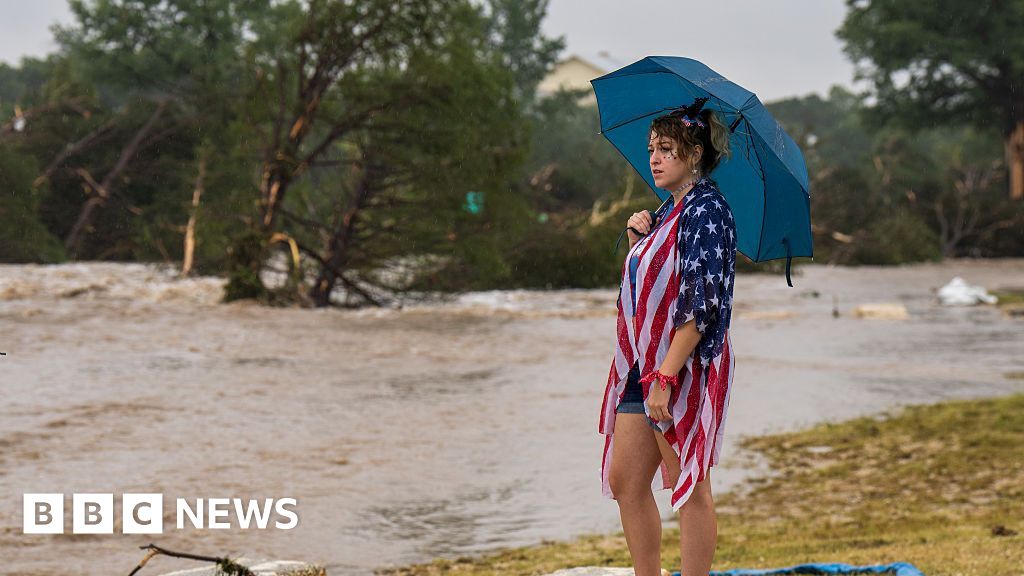For years, Sitaram and Binita Das had longed for a son. The couple loved their five daughters, but on the deeply conservative southern plains of Nepal, they faced having to raise large sums to pay for each of their wedding dowries.
With no way to afford such costs, they decided that Sitaram should join tens of thousands of other Nepalis going to Saudi Arabia in search of work.
The Gulf kingdom has seen a rise in demand for cheap migrant labour as it seeks to rebrand itself on the world stage, in part through large construction projects including futuristic cities, luxury resorts, theme parks and the hosting of the 2034 men’s football World Cup.
Such rapid transformation is attracting global attention and, along with it, greater scrutiny of the alleged treatment of migrant workers such as Das in the country. When he left Nepal for Saudi Arabia, he knew his wife was pregnant, but not that he would never meet their baby.
Now I’m the only person who can look after them. What if something happens to me? I’m at the mercy of God and fate
Binita Das
In February 2024, a month before Rudke Krishna was born, Das was at work in a deep trench when, according to witnesses, the ground above him collapsed, crushing him to death.
Friends and strangers rallied round. Das’s colleagues collected some money for the family, others heard about the tragedy on social media and chipped in and Binita received compensation from an insurance scheme in Nepal which her husband had paid into. But from his company and the Saudi authorities, says Binita, there was only silence. Even his outstanding salary – a paltry £160 a month – remains unpaid, she says.
Under Saudi law, the family members of workers who die on the job should receive compensation, but Binita says all she got from the Gulf state was a bundle of documents, including a death certificate which states, apparently incorrectly, that Das fell to his death.
Binita lives with the couple’s six children and a few farm animals in one of the poorest regions of Nepal, where many houses are still made of bamboo and mud, and carts pulled by cows are more common than cars. Without her husband’s income, she toils for long hours in the fields. “Now I’m the only person who can look after them. What if something happens to me?” she says. “I’m at the mercy of God and fate.”
Versions of the Das family’s story can be heard all across Nepal’s southern belt, where almost every household sends someone abroad for work. The names change but a pattern appears to emerge: families are informed about the sudden death of a loved one by a colleague, details are often vague and contradictory, there is little or no contact from their employer, a long and often fruitless struggle for compensation follows and death certificates provide few clues as to what really happened.
In the case of Saudi Arabia, the deaths of labourers such as Das highlight the country’s failure to protect migrant workers, properly investigate their deaths and ensure their families receive fair compensation, according to rights groups FairSquare and Human Rights Watch.
Evidence uncovered by FairSquare this week “suggests in practice that there is no system in place that ensures that investigations take place in cases where people die in workplace accidents”.
The lack of transparency is even more marked in cases where those deaths are classified as “natural”, by far the most common cause given on death certificates. Human rights groups and pathologists have argued that the term is meaningless, because it fails to provide an explanation for the underlying cause of death.
“What do we know? We are here, we can’t say what happened there,” says Asa Devi Sah Teli, whose husband, Kisan Teli, died in Saudi Arabia last year after collapsing while at work on a construction site. His death certificate says he died of “natural” causes. He was 41.
Employers are not required to pay compensation when deaths are classified in this way, leaving women such as Asa in desperate financial straits. She now struggles to get by with occasional farm work, for which she earns 400 rupees a day (£2.20). “I’m sure he’d still be alive if he’d stayed at home,” says Asa. “We were poor, but at least we were together.”
Saudi Arabia has claimed that its work-related fatality rate is “among the lowest globally”, but analysis of these claims by the Guardian, and separate research by FairSquare, have raised questions about their reliability.
Saudi government data states there were as few as 93 work-related fatalities of all nationalities in 2019, but official records from Bangladesh, seen by the Guardian and based on documents provided by Saudi Arabia – appear to show there were 270 deaths by “accident” of its nationals in the country in the same year. While not all accidental deaths of Bangladeshis may have been work-related, the findings point to a gap between the claims made by the Saudi authorities and other sources.
At 24, Anjali Kumari Rai is already a mother of two boys, a cancer patient and a widow. She and her husband, Surya Nath Ray Amat, dreamed of earning enough to build a small house in the south of Nepal and send their sons to a decent school, but “fate” intervened, says Rai.
After she was diagnosed with cancer, her husband went to Saudi Arabia to earn enough to pay for her treatment. Nine months later, in May 2024, Amat’s relatives were told there was an explosion in a tank in which he was working, killing him, and allegedly two other workers.
Related: Pressure grows on Fifa as reports warn of serious risk to workers amid Saudi World Cup building boom
Rai is eligible for compensation from Saudi Arabia, along with her husband’s outstanding salary and benefits, but seven months after his death she said she had heard nothing from his employer or the Saudi authorities. The only money she says she got from Saudi Arabia came from friends and colleagues in the country who donated about £525.
Amat’s mother, Neelam Devi Rai, is struggling to come to terms with what has happened. “It’s very difficult. I’ve lost hope. How can we look after his wife’s treatment and take care of the children? It’s unimaginable,” she says.
The Ministry of Human Resources and Social Development in Saudi Arabia was approached for comment.
Source link















